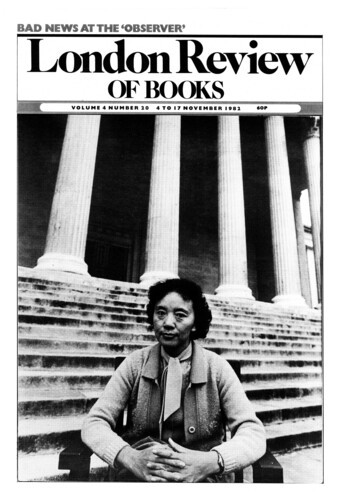Some must get rich first
Colin Legum, 15 March 1984
An estimated thirty to thirty-five million Chinese died, and millions more suffered, in the great revolution associated with Mao Tse-tung’s leadership, but at the very least, he laid the foundations on which it became possible to build a modern industrial society. The great revolution has now entered its fifth phase: an era emblazoned in neon lights all over the country as the Four M’s – modernisation of agriculture, industry, national defence, science and technology. What is missing from the Four M’s is Maoism.–



